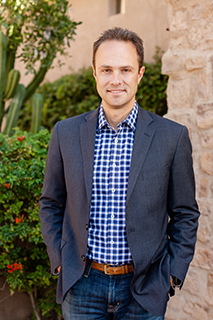Lawyer for Wyoming in Nationwide Opioid Litigation Talks Settlement Impact
Jason Ochs says Wyoming will benefit from $52M in compensation for drug programs
- Published In: Other News & Features
- Last Updated: Dec 30, 2023

By Ernest Beck
Special to the Wyoming Truth
For my recent Word on Drugs column, I spoke with Jason Ochs, a Jackson Hole lawyer who represented five Wyoming counties and cities in nationwide opioid litigation. After a years-long process, a global agreement was reached between 2020 and 2022 to resolve over 3,000 lawsuits brought by individuals, local and state governments, the federal government and Native tribes against the opioid industry for its role in the addiction and overdose epidemic. As a result, up to $54 billion will go toward fighting the drug crisis over the next decades, including an initial $52 million for Wyoming. However, one unresolved case, against OxyContin maker Purdue Pharma, is now before the Supreme Court.
In a follow-up discussion, Ochs talked about his connection to the litigation, why he recommended Wyoming accept both settlement proposals and what “success” means in both legal and human terms, considering the huge loss of life caused by the opioid crisis since it began over two decades ago. What follows are excerpts from the conversation.
Tell me more about your connection to the opioid crisis.
Ochs: A dear friend and mentor—a lawyer and a colleague—had a son who died of a drug overdose. I had known the boy since he was 5 years old. They lived in California, and he was an avid surfer. After a surfing injury that required shoulder surgery, he left the hospital with a 30-day supply of OxyContin—a highly addictive pain medication. Like so many others who were routinely given this drug without any warnings, he soon became hooked and struggled with substance abuse. Sadly and tragically, he overdosed and died after unknowingly taking Vicodin laced with fentanyl. He was a 19-yeard old college sophomore at the time.
How did you get involved in the opioid litigation?
Ochs: This young man’s death triggered me to better understand the problem and to become involved. So after the first lawsuit was filed against Purdue, I took a closer look and spoke with his father. I met with families in Wyoming who told me similar harrowing stories about their kids who became addicted and died. I heard about the grandparents who were left behind to care for their children. Some of these stories were so awful I had to swallow hard to not start sobbing. In addition to the Wyoming plaintiffs, including Caspar and Cheyenne, I represented clients in Kansas, Colorado and Nebraska.
You recommended accepting the global settlement. Why?
Ochs: First, there was the money. After the first domino with Purdue, more defendants—other drug makers, drug distributors, and pharmacies—fell in line.
The wheels of justice turn very slowly, but I knew the money would start flowing faster to places in Wyoming that lacked resources for drug abatement programs. Another advantage: the entire state would receive money to fight the drug crisis, not just the five counties and cities that had joined the litigation.
Was there a downside to saying no?
Ochs: Holding out would mean being left out and isolated with just a few other plaintiffs in the battle against big companies. They would lose the leverage of volume—and that’s a huge plus when you are taking on a Purdue or a Johnson & Johnson or a Walmart. Eventually, my clients agreed to accept the global settlement and worked out a deal with the Wyoming attorney general to split the money 65/35 with the state.
Then came the legal twist, when the Purdue case was separated from the global settlement after members of the company’s founding Sackler family, who are billionaires, demanded immunity from further civil litigation. What did you say to your clients?
Ochs: It was essentially the same argument I had used for the first settlement: if you are among a small percentage of plaintiffs that disagree with the majority, you are basically on your own. And the Purdue money was only a small portion of the $54 billion settlement on the table. My clients eventually decided to accept the Purdue immunity demand that shields the Sackler family. But now it’s up to the court.
It’s always tricky to try to second-guess the justices. What is your prediction?
Ochs: They are no doubt struggling to craft an opinion, weighing the law and the human angle—the loss of life and the suffering of victims’ families, along with the money for abatement. They must also consider the potential impact on bankruptcy law, as this would set a precedent for future cases. It won’t be a unanimous ruling. But ultimately, I believe the majority will grant the Sacklers immunity, while also making clear this is a unique case that does not set a precedent.
This has been a long and complex process. Would you call it a success?
Ochs: Yes, in terms of the vast scope of the litigation and how an army of lawyers worked together to bring big companies to their knees and win compensation for their clients. It was like the $206 billion tobacco settlement in 1998. Fortune 500 companies were also accused of selling a deadly product. Still, if you lost a loved one to a drug overdose, I would never describe this litigation as a success. And we have yet to reduce the record number of drug deaths in the U.S. Challenges remain in Wyoming and across the country. But hopefully this will soon start to change as the settlement money arrives and new drug programs get underway.













